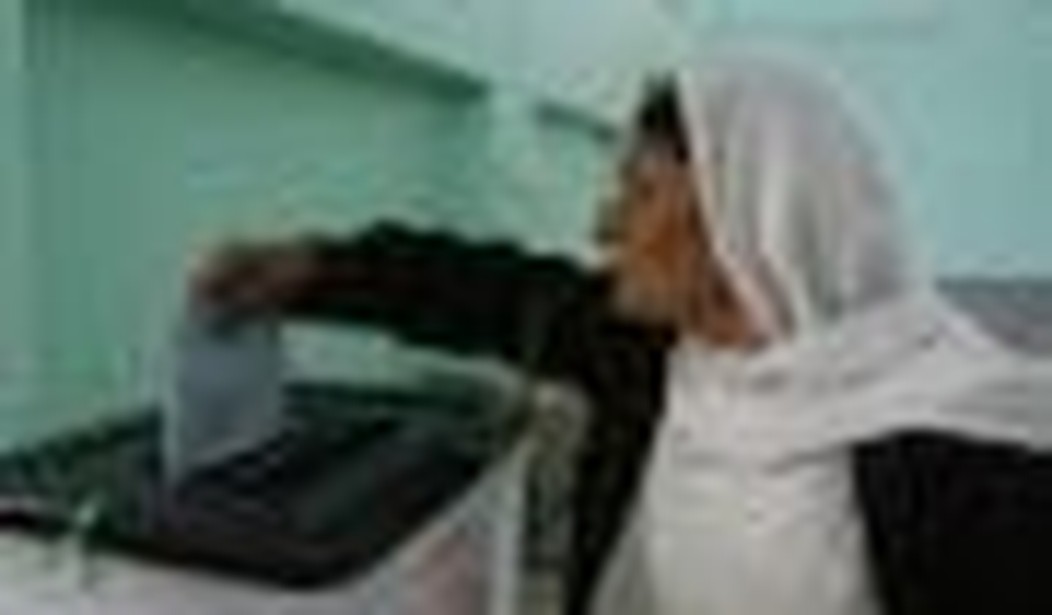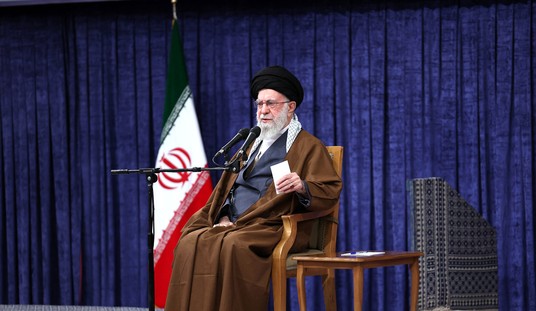The elections in Iraq this past Saturday, where voters took to the polls in 14 of the 18 provinces to select ruling provincial councils, have been acknowledged as the most peaceful since Saddam Hussein was deposed by U.S. forces in 2003.
And yet Reuters reported on Monday that what had been one of the best success stories for U.S. troops in Iraq — the transition of Anbar province from al-Qaeda insurgent stronghold to the most peaceful province in the country — threatens to unravel and possibly plunge the country back into civil war as the Iraqi Islamic Party (IIP) faces charges by Anbar Awakening tribal leaders that it rigged the elections in Anbar to their favor.
The IIP is the Muslim Brotherhood affiliate in Iraq, ruling as part of Prime Minister Nouri al-Maliki’s governing coalition and currently holding 36 of the 41 seats on the Anbar council. While many of the Awakening leaders did not participate in the previous 2005 elections, they actively campaigned this time around, forming an Anbar tribes list of candidates. And yet when many of their supporters ventured to the polls this weekend, they discovered that their names were not on the voting registration lists. In an effort to head off any possible violence, a curfew has been instituted along with a ban on nighttime vehicle traffic.
Tensions have been brewing between the tribal sheikhs and the IIP for a while. As Time magazine reported a few months ago, the Awakening leadership had wanted U.S. troops to remain in Anbar until after the elections to ensure a free and fair vote. However, the handover to the Iraqi government took place back in September. Ever since, the Iraqi government has arrested a number of the Anbar tribal leaders, with some taking refuge with U.S. troops for fear of being detained.
Even then tribal leaders admitted that these measures could push many of their fighters back into the arms of the al-Qaeda-led insurgency. Now finding that their participation in the Iraqi elections was thwarted by possible voter fraud at the hands of the IIP, which proclaimed itself the winner, Anbar stands at the brink of civil war. “We said we will transform from a political entity to an armed wing against the electoral commission and the IIP because we discovered fraud,” one leader told Reuters.
If the claims of voter fraud by the IIP are proved true, or even if many perceive them to be true, the resulting conflict will no doubt be exploited by al-Qaeda and possibly inspire renewed attacks against Iraqi civilians and American troops, potentially plunging the country back into chaos. Thus, all the gains achieved by American troops in Anbar during the past two years and purchased at the expense of the lives of many American soldiers could be quickly undone.
There are other implications from these developments. In recent years, some Western analysts have attempted to rehabilitate the image of the international Muslim Brotherhood, claiming that they have renounced violence and are willing to abide by democratic rules in elections. Chief among these Muslim Brotherhood apologists are Robert Leiken and Steven Brooke of the Nixon Center, who made their case in an article in the March/April 2007 edition of Foreign Affairs entitled “The Moderate Muslim Brotherhood.”
Critics of this public relations makeover of the Muslim Brotherhood, myself included, balked at those claims, arguing that the Brotherhood’s vision of democracy extended no further than “one man, one vote, one time,” meaning that the Brotherhood would only agree to participate in democratic elections just long enough to grab hold of power and begin imposing its stated plans for a totalitarian Islamic state.
It didn’t take long for us Muslim Brotherhood critics to be vindicated. Many of the Muslim Brotherhood’s apologists mistakenly believed that the inclusion of Hamas, the Palestinian branch of the Muslim Brotherhood, in the January 2006 Palestinian elections would nudge them towards democracy and peace. However, just weeks after Leiken and Brooke’s Foreign Affairs article appeared, Hamas staged a coup in Gaza, ousting PA officials under President Mahmoud Abbas and driving many of their Fatah rivals out of the area. Hamas security forces have since begun imposing an extreme Islamic regime in Gaza, with little prospect of any future free elections.
And in Turkey, the governing Muslim Brotherhood-backed Justice and Development Party (AKP), led by AKP Prime Minister Recep Tayyip Erdogan, has been tightening its grip on that once-secular country. In a Washington Post editorial on Monday, Soner Cagaptay lamented the rapid decline of freedom under the AKP’s watch in such areas as women’s rights and free speech.
And Turkish Studies editor Barry Rubin sounds an even more ominous tone about the steadily increasing Islamization of political life under the AKP:
What is motivating the AKP to look more and more like a wolf in sheep’s clothing? The most important factor is its success. From election to election, the AKP increases its base of support. The opposition remains divided and incompetent. The party’s leaders may increasingly be thinking they will be in power forever and inclined to make sure their wish comes true.
And so the media is intimidated; the army is curbed by periodic arrests in retaliation for alleged coup plans. A new constitution is being written for the country. Systematically, institutions are being taken over: the party’s men are put into the bureaucracy, its controlling shadow falls on the universities, and it installs new judges in the courts.
In the countries where the Muslim Brotherhood has gained power, we find that the prospects for continued democracy and peace die rather quickly. The maxim “one man, one vote, one time” seems to be the rule rather than the exception, contrary to the Muslim Brotherhood’s Western apologists. And with threats of violence looming in Anbar in response to election fraud in the Iraqi elections this past weekend, the stakes for the U.S. of the Muslim Brotherhood’s habitual anti-democratic tendencies could increase dramatically.









Join the conversation as a VIP Member